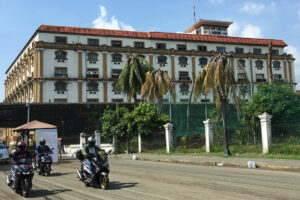DoLE urges employers to foster culture of ‘voluntary compliance’
THE Department of Labor and Employment (DoLE) said Thursday told employers to work towards a culture of voluntary compliance with labor standards, citing the ideal of zero worker complaints with regard to benefits they are due. “(We hope for) them… to really have that culture of voluntary compliance on labor standards. The benefits that should […]

THE Department of Labor and Employment (DoLE) said Thursday told employers to work towards a culture of voluntary compliance with labor standards, citing the ideal of zero worker complaints with regard to benefits they are due.
“(We hope for) them… to really have that culture of voluntary compliance on labor standards. The benefits that should be given to (workers) should be provided on time without any complaints,” Labor Secretary Bienvenido E. Laguesma told reporters on the sidelines of the Arangkada Forum in Pasay City.
He further urged employers to ensure inclusive social protections are extended to workers, especially vulnerable laborers.
“We’d like to see businesses continue to open up to their workers and have real joint problem-solving, consultation, and dialogue,” he added.
The labor chief, during his keynote speech in the Arangkada Forum, bared the efforts of the government to upskill and reskill workers to meet increasing demands.
DoLE, he said, is partnering with the private sector, including industry associations.
“Our interest is towards more quality, decent jobs, ensuring more for all, with the ultimate aim of increasing worker productivity, improving living standards, and skilling our workers so we can maintain the productivity and health of our labor force, and maintain the growth path of the economy,” he said.
The Philippine Chamber of Commerce and Industry (PCCI) on Wednesday at the 50th Philippine Business Conference & Expo, urged the National Government to reform the education system and enhance workforce skills through upskilling and reskilling initiatives.
It added that consultations are necessary to ensure the alignment of education outcomes with labor market needs and benchmark the law against the qualification frameworks of members of the Association of Southeast Asian Nations.
Mr. Laguesma said DoLE is pursuing four strategies following the passage of the Trabaho Para sa Bayan Act: Strengthening the alignment of education and training programs, expanding employability, reducing the regulatory burden on micro, small, and medium enterprises, and ensuring compliance with labor standards.
He added that DoLE is concerned with ensuring social protections as the economy digitizes and becomes more automated.
He said DoLE’s upskilling and reskilling efforts include labor-management education initiatives, enterprise-level training, and comprehensive and full-cycle employment facilitation services through the Public Employment Services Offices.
Job skills mismatch continues to be a focus because 65% of graduates are not getting jobs in the industry of their choice, with 20% of workers with college degrees employed in jobs requiring only basic skills.
The school-to-work transition is also slow, Mr. Laguesma said.
In July, the Philippines posted its highest unemployment rate in a year with fresh graduates entering the workforce, with 2.38 million left jobless that month.
Mr. Laguesma said the Trabaho Para sa Bayan master plan will be submitted to President Ferdinand R. Marcos, Jr. in December. It is currently being circulated around the regions for consultation, he added. — Chloe Mari A. Hufana























